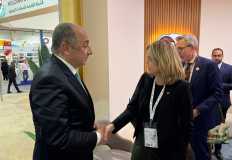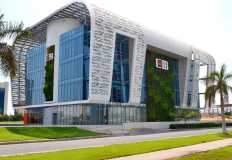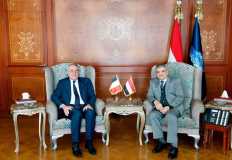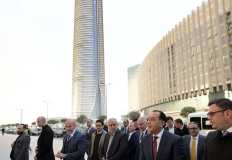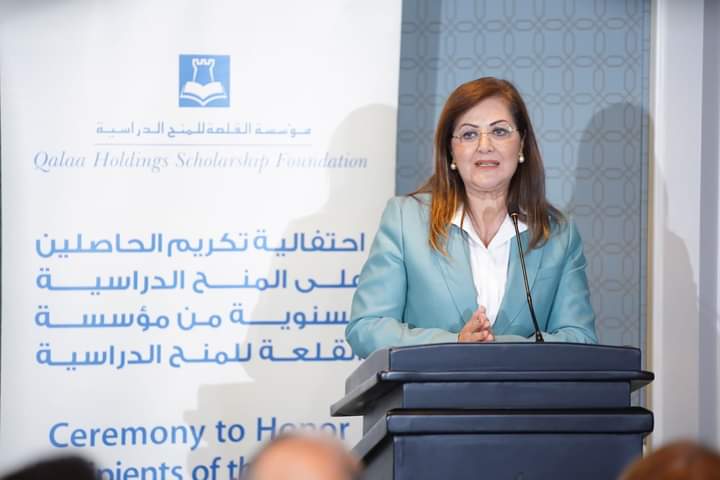
Minister of Planning and Economic Development, Dr. Hala El-Said participated in the 18th annual ceremony of Al Qalaa Scholarship Foundation.
The ceremony was attended by Dr.
Ghada Waly, Under-Secretary-General of the United Nations and Executive
Director of the United Nations Office on Drugs and Crime, Dr. Ahmed Heikal,
Founder and Chairman of Qalaa Holding, Hisham Khazendar, Founding Partner and
Managing Director of the company, Ghada Hamouda, Head of Sustainability and
Marketing at the company, Ambassador Hussein Khazendar, Chairman of the Board
of Trustees of the Foundation, Yasmine Dharghmi, Executive Director of the
Foundation, and a large number of prominent public figures, and members of the
Board of Trustees of Al Qalaa Scholarship Foundation.
In her speech, El-Said lauded Al
Qalaa Scholarship Foundation's dual commitment. She praised the organization
for being a leader in energy and infrastructure investments in Egypt and
Africa, while emphasizing its role as a model for social responsibility in funding
scholarships for ambitious Egyptian students to pursue their master's and
doctoral studies at top international universities.
Hala El-Said commended the
private sector's role in social responsibility, particularly when focused on a
crucial field like education and investing in the future of people. She
expressed her gratitude to the foundation for its ongoing scholarship program. The
foundation established a selection process that prioritizes modern specializations
needed by society, regional diversity (spatial justice) and gender equality as
well as university partnerships.
Hala El-Said underscored the
crucial role of the private sector in fulfilling social responsibility,
highlighting its immense value, particularly when directed towards a critical
domain like education and investing in the future of humanity. She expressed
her appreciation to the foundation for its continued provision of educational
grants through a well-defined selection process.
She explained that the state's
development plans are implemented through a partnership between the government,
the private sector, and civil society. This collaborative approach, she
stressed, reflects the core vision of Egypt 2030, which emphasizes the importance
of cooperation between these key stakeholders to achieve the country's
development goals.
The minister announced a
significant shift in the upcoming fiscal year's budget, with over 42% of
government investments earmarked for human development – specifically health
and education. She acknowledged challenges like high classroom densities in
certain governorates, emphasizing the importance of public-private partnerships
to address such issues.
El-Said also highlighted the government's structural reform plan, emphasizing a key axis: creating an efficient labor market. She stressed the importance of aligning this market with the skills produced by the education system.
